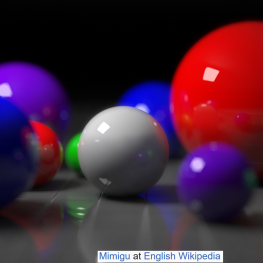Categories
OVERVIEW
CAP4730 is an undergraduate course that introduces students to the fundamental 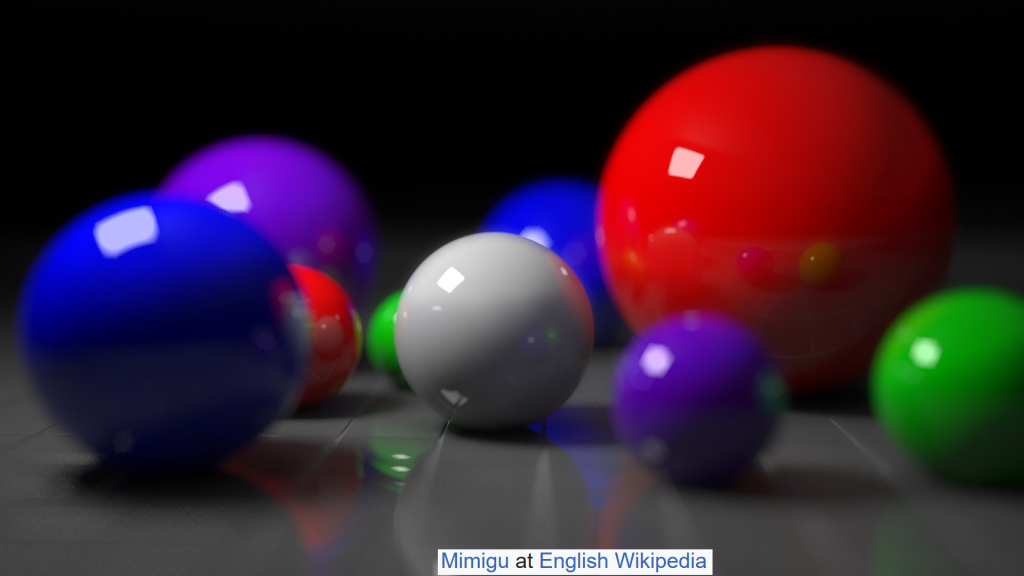 concepts, mathematical principles, algorithms and data structures used in computer graphics. Students will gain experience with OpenGL programming and develop an understanding of the graphics pipeline. Topics covered include shading and illumination, sampling and reconstruction, ray tracing, graphics hardware, geometric and viewing transformations, rendering, modeling curves and surfaces and image based methods.
concepts, mathematical principles, algorithms and data structures used in computer graphics. Students will gain experience with OpenGL programming and develop an understanding of the graphics pipeline. Topics covered include shading and illumination, sampling and reconstruction, ray tracing, graphics hardware, geometric and viewing transformations, rendering, modeling curves and surfaces and image based methods.
Instructor: Dr. Corey Toler-Franklin, CISE Department, University of Florida
Contact: Office CSE 332 or Lab CSE 319, ctoler@cise.ufl.edu
Office Hours: MWF Period 5 (11:45 am – 12:30 pm) and by appointment
Location: CSE E220
Time: MWF Period 4 (10:40 am – 11:30 am)
Course Management: Canvas
Website: https://toler-franklin.com/course/cap4730-computational-structures-in-computer-graphics-spring-2019/
PREREQUISITES:
Data Structures and Algorithms. Basic knowledge of algorithms, data structures and discrete math. Central concepts require matrix operations, composition and parametrization of curves and surfaces. Students should be able to program using a high-level language. Familiarity with C or C++ is helpful — otherwise the learning curve is quite steep in the first weeks. Familiarity with OpenGL is not assumed. The mathematical underpinnings and OpenGL practice are emphasized.
**Contact instructor if you are not sure you are prepared for the course**
TEXTBOOKS
Recommended
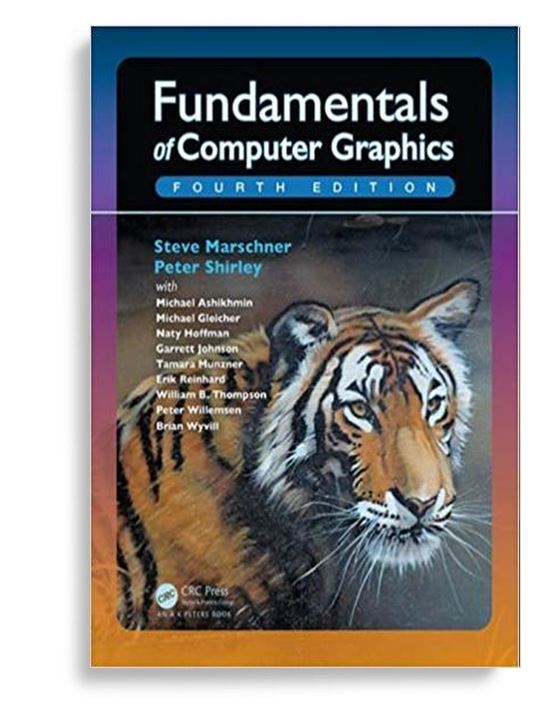  |
Marschner & Shirley,
Fourth Edition ISBN: 1482229390 (Available online) |
 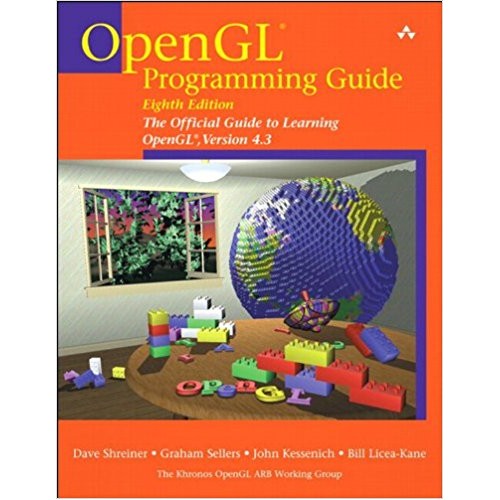 |
DAVE SHREINER, GRAHAM SELLERS, JOHN M. KESSENICH, BILL M. LICEA-KANE
ISBN: 0321773039 Publisher: ADDISON-WESLEY Edition: LATEST (Available online) |
OTHER OPTIONAL REFERENCES
|
STEVEN J. GORTLER
ISBN: 0262017350 Publisher: THE MIT PRESS Edition: FIRST (Available online) |
 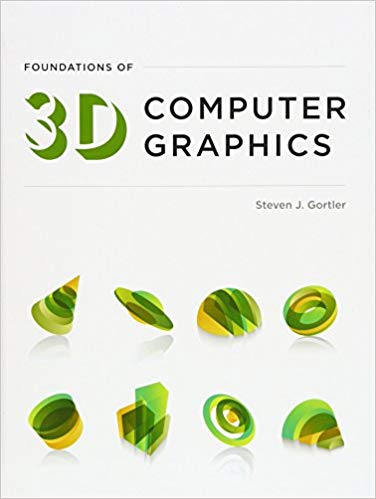 |
|
SAMUEL R. BUSS
ISBN: 0521821037 Publisher: CAMBRIDGE UNIVERSITY PRESS (Available online) |
 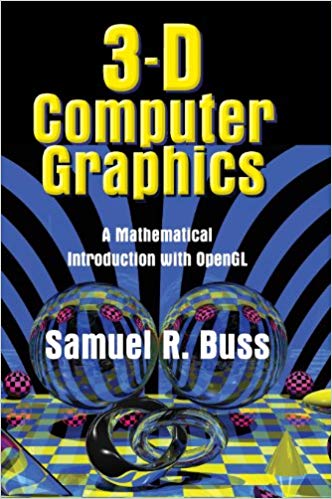 |
MATERIAL AND SUPPLY FEE: None
COURSEWORK
All assignments are distributed and submitted in Canvas.
30% Programming Assignments
20% Final Programming Project
20% Written Homework Assignments
15% Exam 1
15% Exam 2
Programming Assignments
Ray Tracing
Overview
The ray tracing algorithm generates photorealistic images from 3-D geometry in a scene. Ray tracers simulate the behavior of light as photons travel from a light source, collide with and bounce off of objects in the scene, and eventually reach the observer. This process can be computationally intensive depending on the scene complexity and number of light sources.
You will implement a ray tracer that generates images of simple scenes composed of spheres and triangles. Your work will be evaluated based on the following criteria (1) source code completion and correctness 30% (2) ray intersection 20% (3) shading algorithms 20% (4) special effects 20% (5) one page report 10%.
Written Excercises
Homework 1. – Texture Mapping
Homework 2. – Parametric Curves and Subdivision Surfaces
Exams
Fall 2015 CAP 5705 Computer Graphics Exam I
Spring 2017 CAP 4730 Computer Graphics Exam II
SYLLABUS
***weekly in class quiz dates
ACADEMIC INTEGRITY
The work you submit must be your own. Although it is fine to have some level of discussion with piers on assignments, the work you submit must be your own. You may work in groups of 2 or 3 for the final project but all other work should be done individually. DO NOT POST SOLUTIONS TO PROBLEMS AND PROGRAMMING ASSIGNMENTS ONLINE!
MANDATORY HONESTY STATEMENT:
All students admitted to the University of Florida have signed a statement of academic honesty committing themselves to be honest in all academic work and understanding that failure to comply with this commitment will result in disciplinary action. This statement is a reminder to uphold your obligation as a UF student and to be honest in all work submitted and exams taken in this course and all others.
DISABILITIES:
Students Requesting classroom accommodation must first register with the Dean of Students Office. That office will provide the student with documentation that he/she must provide to the course instructor when requesting accommodation.
UF Counseling Services:
Resources are available on-campus for students having personal problems or lacking clear career and academic goals. The resources include: UF Counseling & Wellness Center, 3190 Radio Rd, 392-1575, psychological and psychiatric services. Career Resource Center, Reitz Union, 392-1601, career and job search services.
MANDATORY SOFTWARE USE STATEMENT:
All faculty, staff and student of the University are required and expected to obey the laws and legal agreements governing software use. Failure to do so can lead to monetary damages and/or criminal penalties for the individual violator. Because such violations are also against University policies and rules, disciplinary action will be taken as appropriate. We, the members of the University of Florida community, pledge to uphold ourselves and our peers to the highest standards of honesty and integrity.
